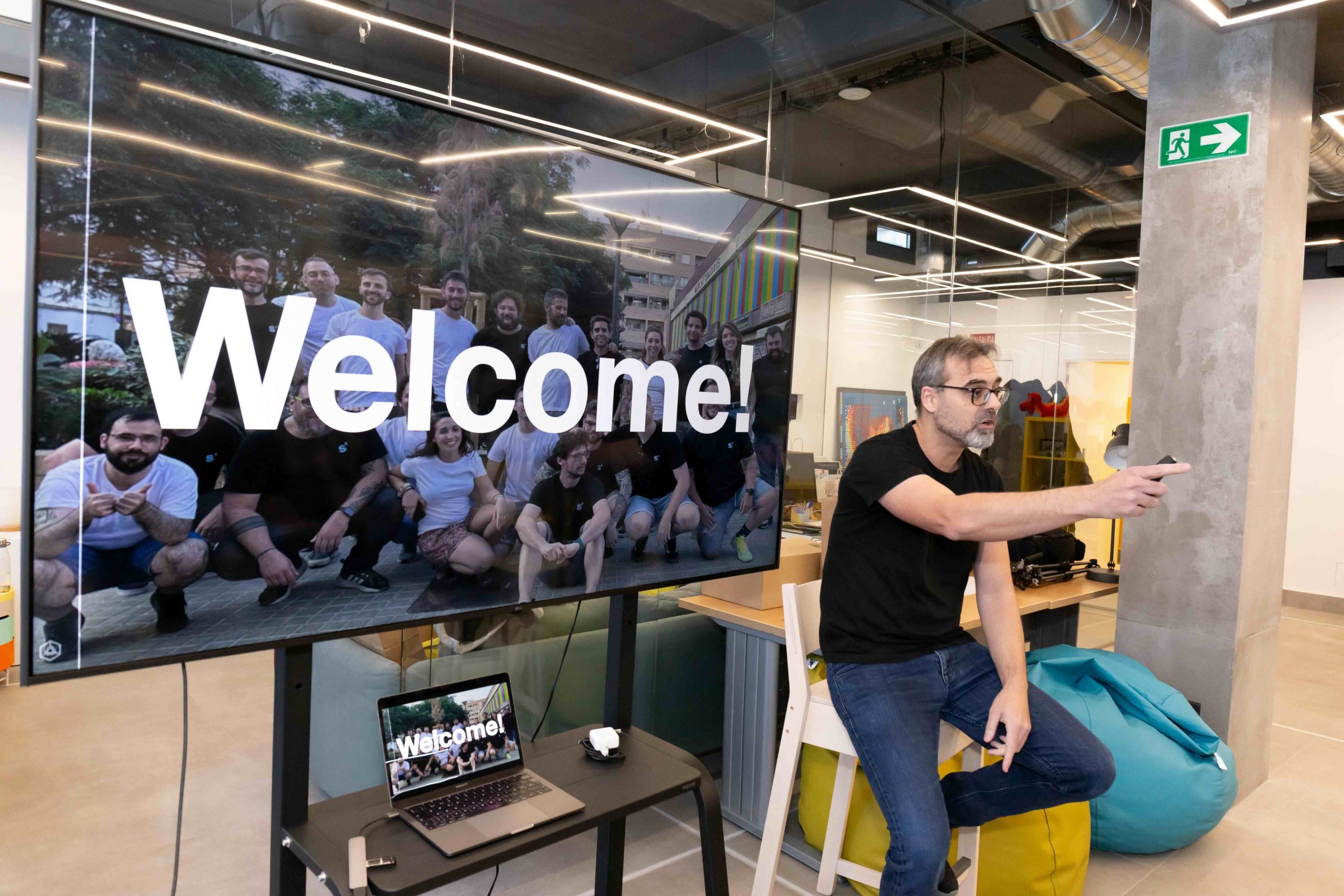Managing projects is not just about planning tasks. It's about creating an environment where the team can do its work and do it well. Where there is room for communication, intelligent decision making and quality as a principle, not a luxury.

Here are some ideas that have worked for us over the years:
1. What methodology do we use? Whatever works
At Secture, we believe there is no one way to do things right. That's why, when we talk about project management, our favorite answer is: depends. We do not follow a blind methodology. Scrum? Yes, but without dogmas. We adapt tools, processes and routines to the team, the client and the context. In addition, new ways of doing things are emerging thanks to AI, and we are taking advantage of them.
Because the important thing is that it works. As that nutritionist used to say: “The best way to eat vegetables is the one that makes you eat them.”. Well, this is the same.
2. A healthy team is a healthy project
We are fortunate to work with amazing people. People who raise their hands when needed, who help, who ask for help, who enjoy working as a team.
The key is in the people. If the team works, the hard part is usually somewhere else: in the relationship with the customer. That's why we cultivate a culture of trust, collaboration and mutual support. And we also learn to say “no” when it's time. Setting limits, negotiating intelligently and protecting the team is not optional: it is responsible leadership.
3. Supervise ≠ Overwhelm
Autonomy is not incompatible with supervision. The role of the Project Manager or Product Owner is to unlock, not to pursue. Be helpful. Be available. Get down in the mud if necessary. Autonomy is respected, but it is not abandonment. We accompany from another place.
4. Speed or quality? Whatever makes the most sense
At first, run. Validate. Measure. But when things get serious, we apply the iron triangle: time, scope and cost. If you bet on quality, as we do here, you accept that the pace changes. And yes: quality pays. But it also shows.
5. Small teams, big decisions
Teams of more than 7 people are starting to struggle. Not because the people are not good enough, but because management becomes complicated. The solution: divide, delegate and specialize. There is no other way.
6. Dailies: useful if you don't go overboard
A good daily is gold. A daily of 20 people talking about the game is not. Small teams, focus on what's important, and a moderator who knows how to cut when to cut.
7. Define well before building in closed projects
Would you build a house without an architect? So why do we rush into projects (not products) without defining them first? Sometimes we want to run so much that we forget the most important thing. And without a good definition, whatever comes later is caught on pins. Because correcting what is poorly built... hurts.
8. Leading large teams: delegate, trust, be
When you manage many projects at once, you can't be on everything. But you can have a system for knowing what's going on, who needs help and where to act. And above all, you can choose very well to whom you delegate. Because it's not about letting go, but about accompanying from another place.
9. Conflicts: better to be safe than to put out fires
Culture matters. A lot. That's why at Secture we take great care in who we hire. We don't just look at the technical aspects. We look at values, ways of working, how people relate to each other. Because a healthy team is built from the beginning. And if something doesn't fit, it's better to solve it soon.

10. The remote is not perfect, but it is possible
Being two meters away is not the same as being 600 kilometers away. But with the right tools and a strong communication culture, remote works. It brings freedom, work-life balance and talent. You just have to take it seriously.
11. Do you have an idea? Go to market NOW
Get out early, spend little, learn fast. That's serious product building. Don't marry your idea, marry the customer's problem.
And the quality? Of course it is. But at the level that makes sense for your product and your moment.
12. Artificial Intelligence: useful, but not magical
We use it, yes. It helps us with documentation, benchmarks, analysis. But I don't delegate the work to it. It gives me structures, saves me time. But I review, edit, confirm. It's not magic. It's just another tool.
In the end, managing projects is all about judgment. Listening, adapting and making decisions. And if there is one thing that is clear to me after all this time, it is this: there are no single recipes. But there are principles that work time and time again.
If you want to know how AI can help you optimize processes, this post may be of interest to you: AI for streamlining project management: documentation, communication, and Gherkin language
Thank you for reading this far. If any of this is helpful to you, it was worth writing.
And if you want to see the full interview in which we talk about all this, we leave it in this video:


